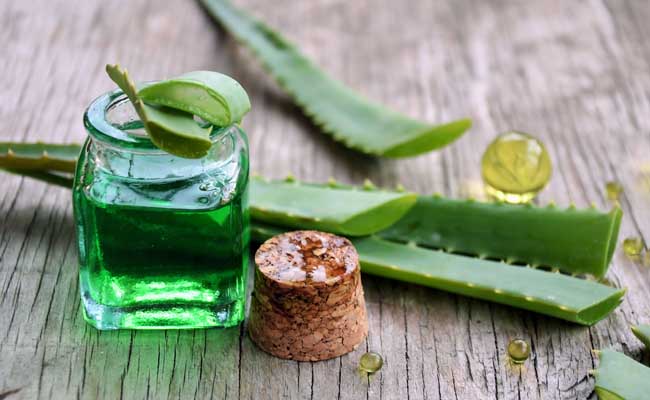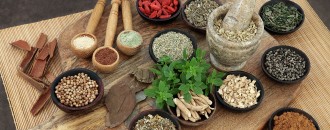
India to promote manufacturing of medicinal plants
The Dollar Business Bureau  Despite sincere efforts by the National Medicinal Plants Board (NMPB) under Ministry of Ayurvedic, Unani, Siddha and Homoeopathy (AYUSH), Government of India, to ensure overall development of medicinal plants, the industry still perceives difficulties in procurement of the same. According to the Ministry of AYUSH, certain medicinal plants are threatened and endangered, thereby resulting in shortage of supply. Because of this reason, the industry finds it difficult in the procurement of medicinal plant materials like Guggul (Commiphora wightii), Katuki (Picrorrhiza Kurroa), Kuth (Saussurea lappa), Jatamansi (Nardostachys Jatamansi), among many others, informed the Shripad Yesso Naik, Minister of State, AYUSH, on Friday. Under NMPB, the government’s developmental activities under promotion of medicinal plants include conservation, cultivation, processing and storage of medicinal and aromatic plants for promoting the availability of herbal raw materials. The Minister further informed that a Central Sector scheme, which is now under the Ministry of AYUSH, has also been implemented under NMPB for development and sustainable management of medicinal plants. Under such schemes, the government provides grant-in-aid to support the survey, inventorization, in-situ and ex-situ of conversation, among other research & development activities promoting medicinal plants. Under the National Mission on Medicinal Plants, the government has also supported cultivation of medicinal plants with backward linkages for establishment of nurseries for supply of planting material. Under the same, the government has also provided provision for forward linkages towards post-harvest management, marketing infrastructure, certification, among others. Further stating that the government has also set up Research Councils of Ayurveda, Siddha, Unani and Homoeopathy, which are having 80 research centres across the country, the Minister informed about the project-based research activities to promote manufacturing of medicinal plants. In this regard, a public sector undertaking called Indian Medicines Pharmaceutical Corporation Limited, has been set up for manufacturing of Ayurvedic and Unani medicines, he added. The Minister also informed about the measures taken by the government for improving the manufacturing of quality medicines and in boosting their level of trade, exports in specific. Under the initiatives, the government has allowed the publication of AYUSH Pharmacopeias containing different quality standards of natural drugs and a Pharmacopeia Commission for Indian Medicine & Homoeopathy has also been set up to address the quality concerns and accelerate the developmental process. The government has made the Good Manufacturing Practices (GMP) legally mandatory for licensing of AYUSH drugs, along with implementation of a WHO and voluntary certification system by the Central Drug Standards Control Organization and Quality Council of India. Besides providing a financial assistance to 27 State Drug Testing Laboratories and 46 State Pharmacies to strengthen the infrastructure capacity, the government has also given approval for 39 Drug Testing Laboratories. Special provisions have also been made in the International Cooperation scheme, in a move to support manufacturers of AYUSH products in promoting their exports in the international markets. According to the Ministry of AYUSH, there are 7,835 licensed manufacturers of Ayurvedic medicines and 1,209 manufacturers of Unani, Siddha and Homoeopathic medicines in the country, as on April 1, 2014. Now, the government’s measures are expected to take the number to higher level and also expand the market scope of manufacturers of traditional Indian medicine.
Despite sincere efforts by the National Medicinal Plants Board (NMPB) under Ministry of Ayurvedic, Unani, Siddha and Homoeopathy (AYUSH), Government of India, to ensure overall development of medicinal plants, the industry still perceives difficulties in procurement of the same. According to the Ministry of AYUSH, certain medicinal plants are threatened and endangered, thereby resulting in shortage of supply. Because of this reason, the industry finds it difficult in the procurement of medicinal plant materials like Guggul (Commiphora wightii), Katuki (Picrorrhiza Kurroa), Kuth (Saussurea lappa), Jatamansi (Nardostachys Jatamansi), among many others, informed the Shripad Yesso Naik, Minister of State, AYUSH, on Friday. Under NMPB, the government’s developmental activities under promotion of medicinal plants include conservation, cultivation, processing and storage of medicinal and aromatic plants for promoting the availability of herbal raw materials. The Minister further informed that a Central Sector scheme, which is now under the Ministry of AYUSH, has also been implemented under NMPB for development and sustainable management of medicinal plants. Under such schemes, the government provides grant-in-aid to support the survey, inventorization, in-situ and ex-situ of conversation, among other research & development activities promoting medicinal plants. Under the National Mission on Medicinal Plants, the government has also supported cultivation of medicinal plants with backward linkages for establishment of nurseries for supply of planting material. Under the same, the government has also provided provision for forward linkages towards post-harvest management, marketing infrastructure, certification, among others. Further stating that the government has also set up Research Councils of Ayurveda, Siddha, Unani and Homoeopathy, which are having 80 research centres across the country, the Minister informed about the project-based research activities to promote manufacturing of medicinal plants. In this regard, a public sector undertaking called Indian Medicines Pharmaceutical Corporation Limited, has been set up for manufacturing of Ayurvedic and Unani medicines, he added. The Minister also informed about the measures taken by the government for improving the manufacturing of quality medicines and in boosting their level of trade, exports in specific. Under the initiatives, the government has allowed the publication of AYUSH Pharmacopeias containing different quality standards of natural drugs and a Pharmacopeia Commission for Indian Medicine & Homoeopathy has also been set up to address the quality concerns and accelerate the developmental process. The government has made the Good Manufacturing Practices (GMP) legally mandatory for licensing of AYUSH drugs, along with implementation of a WHO and voluntary certification system by the Central Drug Standards Control Organization and Quality Council of India. Besides providing a financial assistance to 27 State Drug Testing Laboratories and 46 State Pharmacies to strengthen the infrastructure capacity, the government has also given approval for 39 Drug Testing Laboratories. Special provisions have also been made in the International Cooperation scheme, in a move to support manufacturers of AYUSH products in promoting their exports in the international markets. According to the Ministry of AYUSH, there are 7,835 licensed manufacturers of Ayurvedic medicines and 1,209 manufacturers of Unani, Siddha and Homoeopathic medicines in the country, as on April 1, 2014. Now, the government’s measures are expected to take the number to higher level and also expand the market scope of manufacturers of traditional Indian medicine.
This article was published on March 20, 2015.




KerunIp_AAHK_02_1620.jpg)

 to success.
to success.